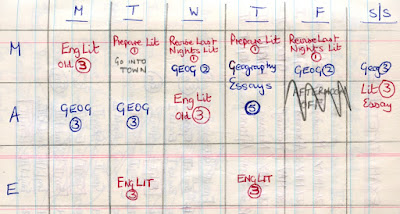Little remembered in these memoirs is my three years as a mature student at Hull University, and so it will remain. I enjoyed it immensely, but it was clouded by relationship issues, best forgotten.
Otherwise, the course was everything I could have hoped for, full of exciting ideas and ways of thinking about the world. It was both literate and numerate, examining competing theories and their supporting evidence, along with experimental design, statistics and data analysis.
Psychology was a diverse, well-rounded subject in those days. The popular belief that it dwells on people’s oddities is mistaken. It is a rigourous, scientific discipline. To give some idea of this, among my favourite topics were: how we acquire and learn to use language, how intellectual development changes with circumstances, the transmission of learning within groups of primates, Richard Dawkins’ ideas about The Selfish Gene, and the concept of life as an agent of negative entropy.
What I did not anticipate was that, of the 68 on the course, around 15 of us would be over the age of twenty-five, with more over twenty-one. The department took a favourable attitude towards mature students, and accepted a larger than average number each year. Some, like me, were looking for a complete change of career. Others were psychiatric nurses hoping to move into clinical psychology. There were mothers with children at school, taking the opportunity to get a degree. The upshot was, unlike the term I spent in teacher training, I had no sense of being older or out of place.
We had a good time socially. As mature students, we could join the research students’ association, which had its own bar in a quiet part of the campus. Although these were still the days of strict licensing hours, one of us got elected on to the committee, with keys to the bar, and it was not unknown for drinks to be served after it should have closed for the afternoon. A couple of alcoholic lecturers became regulars, and their insights into how to play the academic game were invaluable. One was so bright, he had more than once got through to the finals of The Times national crossword competition. “Never again in your lives,” he said one day, “will you belong to such a group of intelligent well-informed people”. He may have been right.
I was well-aware how privileged and different it was from my previous existence. People in Leeds would still be slaving away at desks from nine in the morning until half past five at night in dingy offices, wearing uncomfortable suits, shirts and ties, peering at columns of numbers, contributing to the economy. Meanwhile, I was answerable only to myself, responsible for my own workload. There was no one to tell me to get up in the morning. I began to question what I was doing. Was it to be just an interlude from reality, a self-indulgent privilege? I stopped spending so much time in the research students’ bar, reworked the parts of the syllabus I found difficult (such as statistics) and applied myself properly.
I applied the techniques and strategies that had
worked so successfully at ‘A’ level: taking care to know what was
expected, and being well-prepared by reworking lecture notes and reading
around the topics.
One favourite place to work was beside the windows at the top of the university library, a wonderfully bright and quiet place with panoramic views to distant Lincolnshire. I watched the Humber Bridge suspension cables being spun.
From the seventh floor, you can see England.
Hull and East Riding,
Holderness hiding,
Humberside siding,
Seems oh so small then.
But we can see it.
We live there.
From the seventh floor, you can see Hull.
River suspended,
Towers up-ended,
No part of the city
The University.
But we can see it.
We work there.
From the seventh floor, the campus.
And there, by the way,
Beside the pathway,
In earth-science attic,
All looks so static.
But we can see it.
We are there.
From the Psychology tea room you can see sod all.
Try as we’re able
From coffee-cupped table
To reach a perspective,
The viewpoint’s defective.
But can we see it?
What do we there?
I graduated with a good degree. Three years reading textbooks and journal papers provides an ‘enriched environment’ that improves your ability to handle abstract ideas. Books I found demanding before university now seemed straightforward. I gained the confidence to set my own aims and ambitions rather than those I imagined others wanted for me.
What to do next? I explored becoming a probation officer. I could have gone back to accountancy and made a success of it. But influenced by reading, particularly Christopher Evans’ ‘The Mighty Micro’, I went on to a one-year Masters degree in computing at UMIST, Manchester. Many thought computing and psychology unlikely bedfellows, but it led to a career along what is actually quite a fine line between the two subjects.


